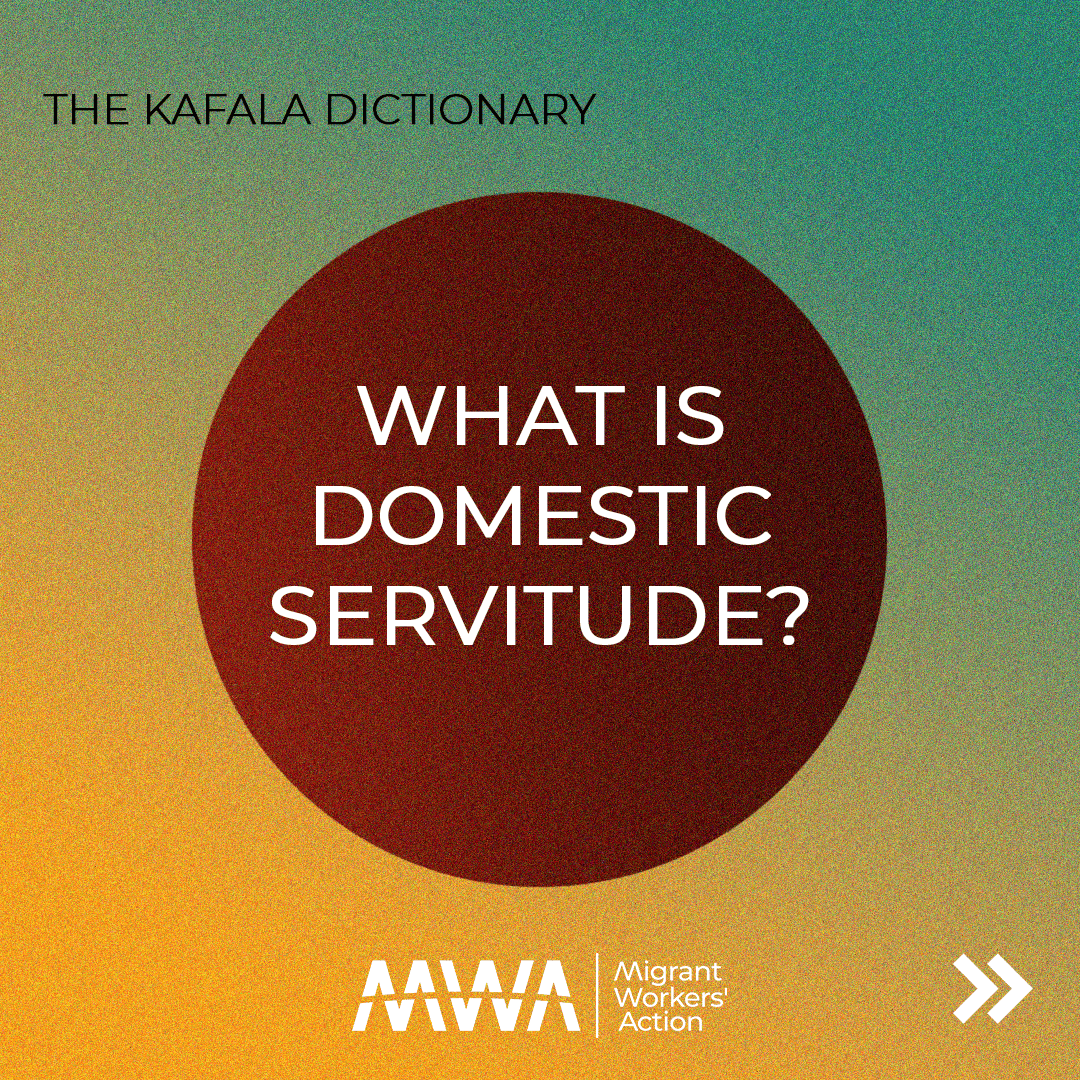Domestic servitude is the exploitative and controlling practice of ‘employing’ live-in domestic workers. It is a form of forced labour but with distinct patterns and challenges due to the specific conditions of living in the employer’s household and being invisible to external control or protection. Domestic workers are more vulnerable to various forms of abuse and deprivation of freedoms.
The majority of domestic workers are women, who are at an increased risk of harassment, and abuse including physical and sexual violence. The working conditions in domestic servitude are often characterised by excessive work hours, lack of privacy, limited freedom of movement and low wages or even wage theft.
Source: End Slavery Now
The majority of migrant workers in Lebanon are domestic workers with the latest estimate by the IOM assuming that 42% of them are live-in MDWs residing and working in their employers’ households. Their lives are completely controlled by their employers, including their freedom of movement, increasing their risks of finding themselves in domestic servitude without any access to legal support and services.
In Lebanon’s Kafala system, countless women have experienced human rights abuses including verbal and physical abuse and Sexual and Gender-Based Violence, while simultaneously being forced to do unpaid domestic work. This has particularly worsened with the Lebanese financial crisis, where many employers justify the shortage of US Dollars as a reason to withhold the MDWs' salaries.


